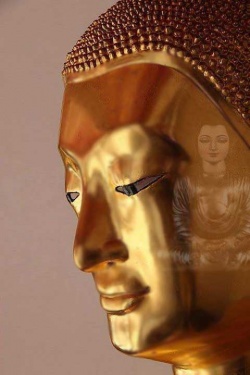What is it that we actually experience?
The “external world” presented to us by our perceptions is merely a collection of the electrical signals reaching our brain. Throughout our lives, these signals are processed by our brain and we live without recognizing that we are mistaken in assuming that these are the original versions of matter existing in the “external world”. We are misled because we can never reach the matter itself by means of our senses. – The External World is Inside the Brain
The above statement resonates with the Buddhist view of the world and the role of our perception in creating our own external realities. There are two different philosophical schools in Mahayana tradition which departs on their answers to the question; what is it that we actually experience? This quasi-scientific view resembles with what is called the Vijnanvadins or Yogacara school of Buddhism, which posits that what we see or experience is a mere illusion (Maya) or appearance (abhasa) of the mind. World is nothing but the false ideation of the mind, like a dream. They refute the existence of any “external world” or “extra-mental” objects. Everything that “appears” outside there as something external is in actuality simply electrical signals in our brain with senses acting as the gateways for processing and transmitting sense data. Therefore, it is again our brain that interprets and attributes meaning/language (color, sound and name etc) to the contents of our perception or sense data. Now the brain-mind debate is not to be pursued here.
However, the Sunyavadins or the Madhyamikas, on the other hand, holds that even the teaching that the ‘world is only mind’ or the “reality is only mind” is a provisional truth. In the final analysis, according to them, experience is unreal. Even the mind itself is non-existent, empty and void. You are not seeing anything at all. Everything is non-existent and void. However, this would be doing injustice to the concept of shunyata. Because, emptiness doesn’t mean that no exists, but it posits that no entity has an inherently independent being or existence, it only negates what is called the svabhaava of the entities. Therefore, everything including the mind lacks svabhaava according to the Shunyavadins or Madhyamikas as opposed to the Vijnanvadins.
